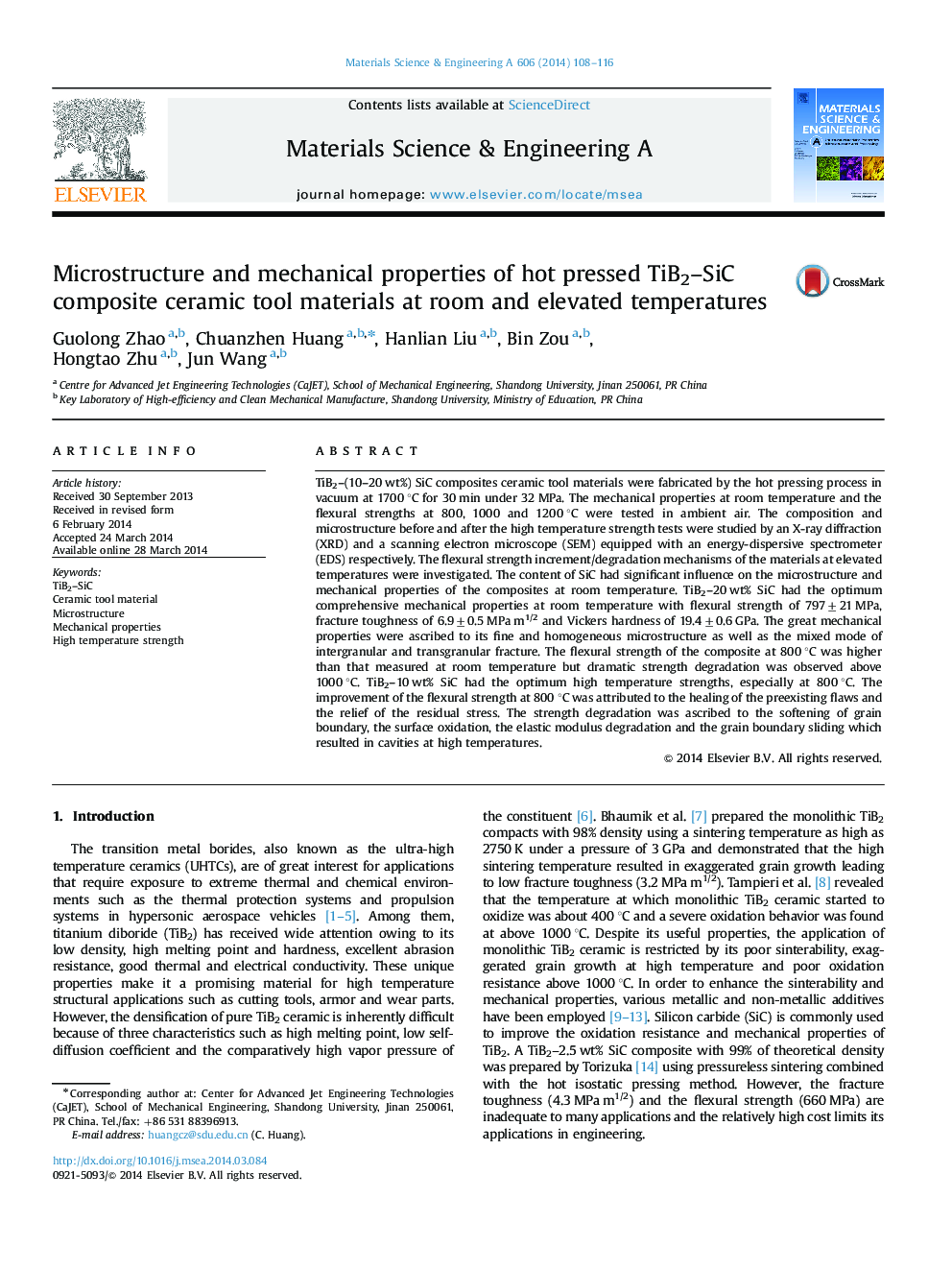| Article ID | Journal | Published Year | Pages | File Type |
|---|---|---|---|---|
| 1575039 | Materials Science and Engineering: A | 2014 | 9 Pages |
Abstract
TiB2-(10-20 wt%) SiC composites ceramic tool materials were fabricated by the hot pressing process in vacuum at 1700 °C for 30 min under 32 MPa. The mechanical properties at room temperature and the flexural strengths at 800, 1000 and 1200 °C were tested in ambient air. The composition and microstructure before and after the high temperature strength tests were studied by an X-ray diffraction (XRD) and a scanning electron microscope (SEM) equipped with an energy-dispersive spectrometer (EDS) respectively. The flexural strength increment/degradation mechanisms of the materials at elevated temperatures were investigated. The content of SiC had significant influence on the microstructure and mechanical properties of the composites at room temperature. TiB2-20 wt% SiC had the optimum comprehensive mechanical properties at room temperature with flexural strength of 797±21 MPa, fracture toughness of 6.9±0.5 MPa m1/2 and Vickers hardness of 19.4±0.6 GPa. The great mechanical properties were ascribed to its fine and homogeneous microstructure as well as the mixed mode of intergranular and transgranular fracture. The flexural strength of the composite at 800 °C was higher than that measured at room temperature but dramatic strength degradation was observed above 1000 °C. TiB2-10 wt% SiC had the optimum high temperature strengths, especially at 800 °C. The improvement of the flexural strength at 800 °C was attributed to the healing of the preexisting flaws and the relief of the residual stress. The strength degradation was ascribed to the softening of grain boundary, the surface oxidation, the elastic modulus degradation and the grain boundary sliding which resulted in cavities at high temperatures.
Related Topics
Physical Sciences and Engineering
Materials Science
Materials Science (General)
Authors
Guolong Zhao, Chuanzhen Huang, Hanlian Liu, Bin Zou, Hongtao Zhu, Jun Wang,
